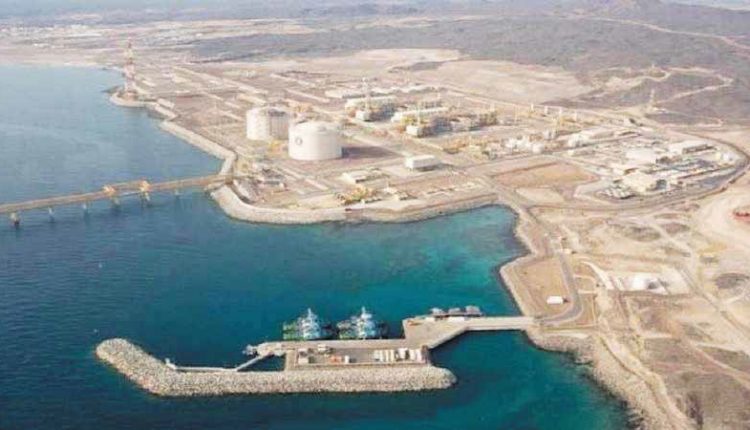Refusal to Pay Salaries Won’t Guarantee Saudi-led Aggression Continuation of Looting Yemen’s Wealth
By the evening of the 2nd of October, and after the completion of the six months of its total time, the third period of the UN-brokered truce in Yemen expired, without any signs of economic and living peace for all Yemenis. Rather, division, fragmentation, and intransigence dominate the position of the Saudi-backed government, and behind it the US-Saudi aggression, not for a clear goal, but rather to fabricate pretexts that miss real peace in Yemen and the entire region.
Sana’a insists on disbursing the salaries of all state employees, according to the 2014 statements, without regional or factional division, including the salaries of 1.25 million employees in the civil and military sectors in all governorates. That is in accordance with a transparent mechanism and from secure funding sources so that the exchange process does not stop months after the agreement. However, the Saudi-backed government rejected this equitable demand for all Yemenis without exception.
The 2014 statements, despite their fragmentation of the total current employees, were a main condition that the Saudi-backed government has repeatedly repeated since it pledged to pay the salaries of all Yemeni employees, in exchange for the approval of the Security Council and the United Nations to transfer the operations of the Central Bank of Yemen to Aden, and divert the revenue stream to it.
Instead of its commitment to fulfill this pledge made before the United Nations and the international community, the Saudi-backed government, with the support of the coalition, is moving ahead with disavowal of these commitments, at pivotal moments in achieving economic and living peace for all Yemenis. Making such excuses is worse than refusal, by excluding 653,000 military and security employees from salaries under the pretext of their military and security qualities, and 125,000 employees under the pretext of belonging to economic units. It is a flagrant violation of their identity and affiliation as Yemenis who were affected by the economic war and its harsh repercussions on their families.
The Saudi-backed government – which was and still spends more than seven million dollars a month as fixed salaries for its employees outside the country according to bank documents – was not satisfied with this racist view. Rather, it excluded the employees of the central authorities, such as the office of the Presidency of the Republic and the utilities directly affiliated with the government, and the offices of ministries, i.e. 12.4% of the total civil employees. It also intended to divide 472,000 civilians among the governorates to reduce the total number of salaries due to 200,000 employees working in service areas.
This apparent intransigence does not only mean evading any financial commitments, but rather means making the intention of a long-term economic war, the gains of which will not be interrupted in the calculations of the coalition, which is keen to continue the war to continue to loot Yemen’s oil and gas wealth.
The Saudi-led coalition looted during the truce period (April 2 – October) about 10 million barrels of Yemeni crude oil through the ports of Al-Nashima and Al-Daba, at a value of $1.1 billion, equivalent to 661.8 billion riyals. It is equivalent to six months’ salaries for Yemeni public sector employees, at 77 billion riyals per month. This revenue is outside the revenue from domestic gas sales and customs revenue at the ports and airports under the control of the US-Saudi aggression.
There were many options offered and accepted by the Sana’a government regarding the salary by collecting the revenues of the ships coming to the port of Hodeidah, provided that the Saudi-backed government is committed to financing the salary account deficit from oil and gas revenues. This option was rejected by the Saudi-backed government and behind it the coalition, while the Sana’a government insisted on linking salaries to oil and gas sales, as it is more guarantee for the continuation of salary payments without interruption, while continuing its commitment to the Stockholm Agreement mechanism until now.
What is important in the salary issue is that the refusal of paying salaries, which is a demand of all Yemenis, means nothing but the escape of the Saudi-backed government from the legitimate entitlement of every Yemeni. However, it is an escape that does not and will not guarantee the coalition the continuation of the looting of Yemeni oil and gas resources. Rather, it will open a wide war on its oil fields deep in its lands. The spokesman for the Yemeni Armed Forces confirmed that the war would devour the assets of investors and oil companies in the UAE and Saudi Arabia.
The Supreme Economic Committee of the Sana’a government, in a statement issued on Tuesday, sent letters to all local and foreign oil companies, and oil service companies, in addition to shipping companies. It warned all companies of the consequences of not complying with the decisions contained in the correspondence, in order to preserve their interests. It also emphasized that it continues to monitor and follow up the companies’ compliance with these decisions, and any violation will be submitted to the authorities authorized to defend the wealth of the Yemeni people.
The statement stressed that these correspondences came as a legal procedure based on the Yemeni constitution and laws in force. It obligates the protection and maintenance of national wealth, and is based on the partnership agreements approved by the Parliament, as well as the relevant resolutions of the United Nations General Assembly.

